Best Diet for Bipolar Disorder

Here are some general macro and micronutrients needed for bipolar disorder recovery:
1. Vitamin D
Studies have found that Vitamin D helps in reducing the severity of generalized anxiety symptoms. Low levels of Vitamin D have been linked to depression and mood disorders. Deficiency of vitamin D can lead to muscle pain and weakness.
Sources: Sunlight exposure, fortified dairy products, fatty fish, and supplements.
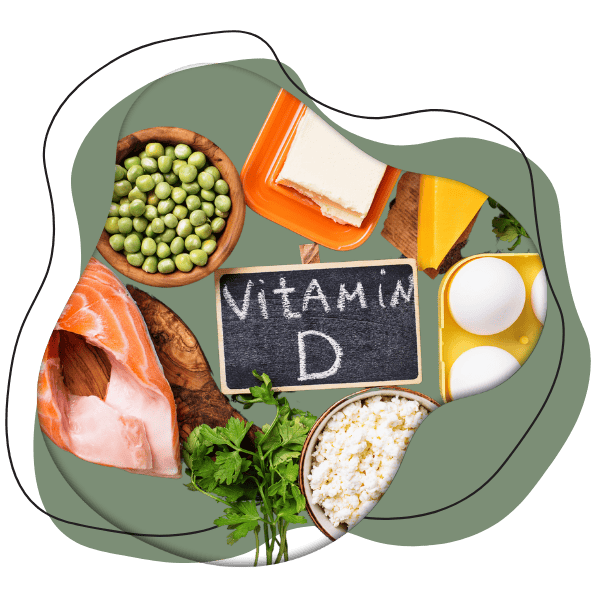
2. Magnesium
Magnesium helps bipolar patients by increasing the concentration of cerebral serotonin, and GABA (Gamma-aminobutyric acid) reduces neuronal excitability by inhibiting nerve transmission. It also plays an important role in nerve functioning and may help relieve symptoms of mania and depression by facilitating deep sleep.
Sources: Leafy green vegetables, nuts, seeds, legumes, whole grains, and dark chocolate.
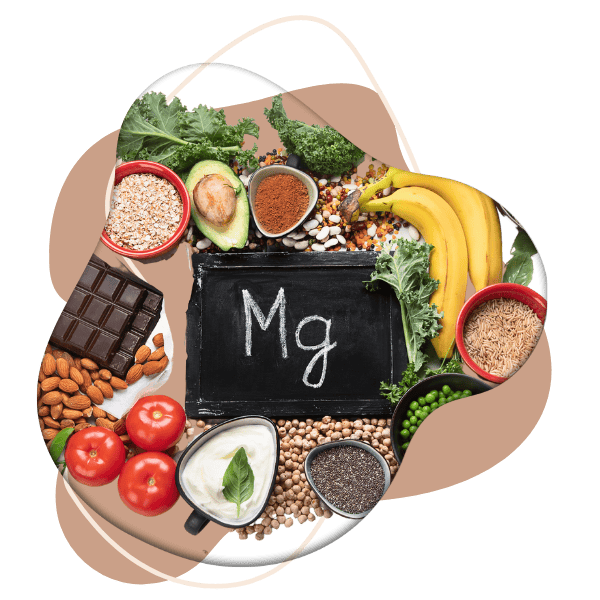
3. Protein
Adding protein-rich food to your diet helps you in improving brain functions. A protein called “p11” is thought to play a role in the development of depression. It also enhances memory. Protein Deficiency can lead to depression and other health issues.
Sources: Turkey, chicken, beef, fish, tofu, pumpkin seeds, nuts, and dairy products.
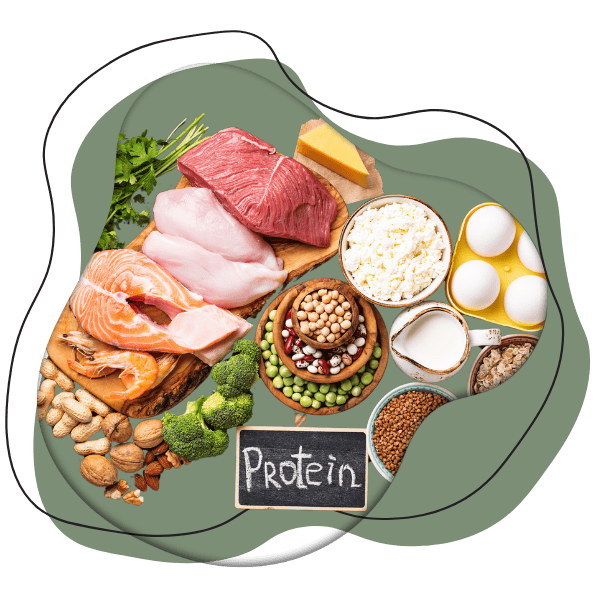
4. Omega-3 fatty acids
Omega-3-rich diet may reduce inflammation and help stabilize mood. It also helps in the reduction of triglycerides in the blood, helps reduce joint inflammation in rheumatoid disease, helps nourish brain and eyes functions, helps prevent and alleviate dementia, depression, asthma, migraine, and diabetes, and helps reduce the risk and preventing heart disease and ischemic stroke.
Sources: Walnuts, Flax seeds, Chia seeds, Soybeans, Fatty fish (salmon, mackerel, sardines), and omega-3 supplements.

5. B Vitamins
They support brain function, including producing neurotransmitters like serotonin and dopamine. The use of vitamin B6 as an additional treatment of lithium may be associated with improving the mood symptoms of bipolar disorder. Vitamin B6 and Vitamin B1 can improve the quality of sleep in bipolar disorder. Additionally, B12 helps prevent megaloblastic anemia, a blood condition that makes people tired and weak.
Sources: Leafy greens, eggs, whole grains, fortified cereals, beans, meats like chicken or beef, and supplements.
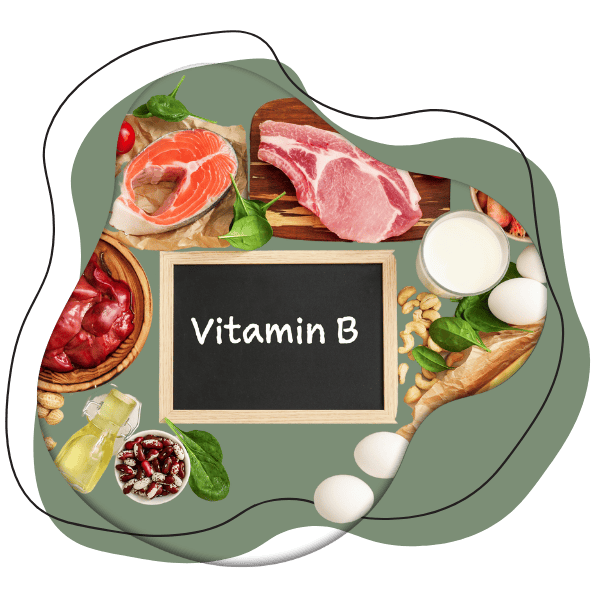
6. Folate (Vitamin B9)
It helps reduce the symptoms of depression. Folate (Vitamin B9) is important for the formation of red blood cells. It is important for proper brain functioning and good mental and emotional health.
Sources: Leafy greens (spinach, kale), lentils, chickpeas, and fortified cereals.
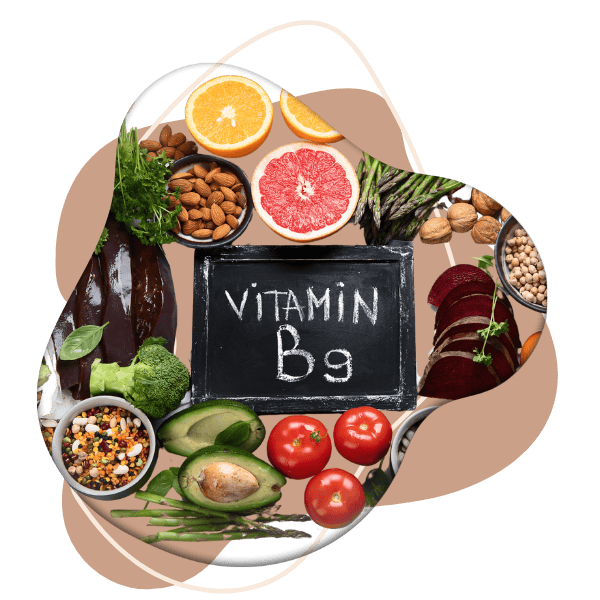
7. Zinc
Zinc is an essential nutrient for bipolar patients. It supports our body functions including, cellular health, immune systems, and certain brain functions. It also helps in controlling the hippocampus’s long-term potentiation, boosting neuronal survival, and promoting learning and memory.
Sources: Meat, shellfish, legumes (chickpeas, lentils), seeds, and nuts.
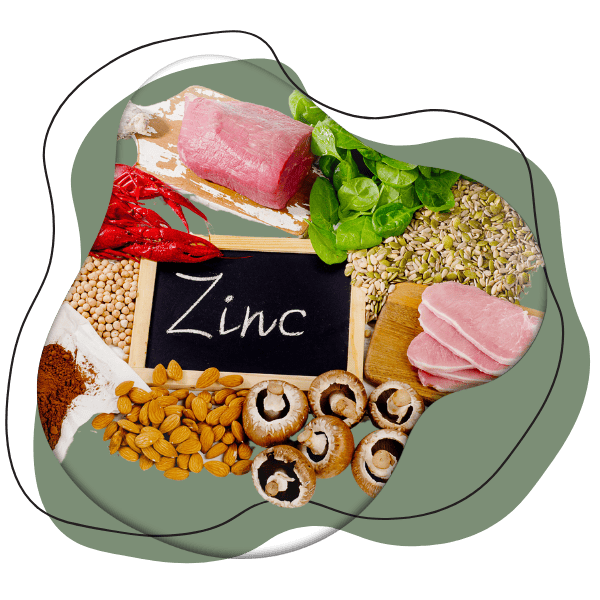
To know more about adding these elements into your diet for a smoother bipolar journey.
What foods and drinks to avoid with BPD?
Processed sugars significantly affect the person with a diagnosis of bipolar disorder, causing considerable alterations in mood and energy as well. Sharp increases and decreases in sugar contribute to irritability, fatigue, and heightened emotional reactions. High sugar consumption can also encourage increased body inflammation, which researchers believe has a significant role in the worsening of mental health symptoms.
Over time, dependence on processed sugars contributes to unhealthy eating patterns that expose risk to the healthy overall stability of mood and emotional control. Processed sugars may also interfere with the effectiveness of medications used to manage bipolar disorder, complicating treatment outcomes. Reducing sugar intake can be a crucial step in fostering long-term mood stability and overall mental well-being.
Caffeine affects patients with bipolar disorders in many ways that cause them to exhibit numerous side effects that worsen the symptoms. It heightens anxiety and agitation and thus makes emotional equilibrium complicated, especially during attacks of mania and hypomania. It also affects sleep patterns, causing insomnia and low-quality sleep, which is quite significant in mood regulation.
For all these reasons, patients diagnosed with bipolar disorder are commonly advised to monitor and control their intake of caffeine. Moreover, caffeine disrupts natural sleep cycles, sleep quality is a critical factor in managing bipolar symptoms, limiting caffeine can contribute to more stable emotional health and improved overall functioning.
Drinking Alcohol throughout bipolar illness may cause several side effects that worsen symptoms. Alcohol typically disrupts mood and, consequently, worsens both mania and depression and may amplify depressive feelings and suicidal ideation by its depressant effect. It influences the quality of sleep, which is considered to modulate mood, and habitual consumption leads to the development of withdrawal symptoms that include anxiety and irritability.
In short, alcohol complicates bipolar disorder management and medication effectiveness. Chronic alcohol use can also lead to increased impulsivity during manic episodes, making risky behaviors more likely. Furthermore, it can interfere with decision-making and self-control, making it harder for individuals to follow their treatment plan consistently.
Highly processed foods may potentially act adversely on those patients diagnosed with bipolar disorder because these foods have low levels of nutrients but high levels of unhealthy additives. These foods often contain too much sugar, salt, and unhealthy fats (such as vegetable and seed oils), which contribute to inflammation and negatively affect cognitive performance.
Increased intake of highly processed foods over time can also reduce overall mental health and worsen the problems with the management of the disorder. Highly processed foods can also disrupt gut health, which is increasingly linked to mood regulation and mental well-being. Over time, relying on these foods can contribute to mood instability, making it more difficult to maintain emotional balance and respond effectively to treatment.
Excess salt intake is harmful to patients with bipolar disorder, mainly due to the stimulation of increased levels of thirst and urination. Increased sodium may lead to retention of fluids in the body, thus affecting the blood pressure level and contributing to anxiety levels. Maintaining a balanced diet, with appropriate salt content, is important for general well-being and mood stability during bipolar disorder.
Excessive salt intake can also interfere with the effectiveness of certain medications used to treat bipolar disorder by disrupting the body’s electrolyte balance. Reducing salt consumption can help support both physical and mental health, promoting better mood regulation and overall stability.
Also known as structured lipids, excessive intake of structured fats is often associated with processed and fried foods and can be devastating for a patient with bipolar disorder. These fats are not natural as they have been chemically or enzymatically modified. Such fats are often associated with increased inflammation and could lead to weight gain.
Structured fats may also disrupt the balance between omega-3 and omega-6 fatty acids inside the body, thus making mood swings worse and anxiety symptoms worse. Diets low in structured fats and rich in healthy fats, such as those provided by fatty fish, nuts, and avocados enhance mental health as well as overall well-being.
Helping Over 100 Patients (And Counting!)
Imran is such a great yoga trainer! I had the opportunity to have some 1:1 sessions with him. He crafted a yoga routine that acommodated my knee pain as well as my beginner level experience with yoga.
H.KImran is a gentle soul with a purposeful vision of making a difference in the mental health space. I find his content insightful, engaging and most importantly authentic. Thank you, for your tenacity and for doing the much needed work in this space!
ANDREA MAUImran is an exceptionally talented individual. He was able to turn his life around from bipolar disorder. I witnessed his transformation. Based on his results I have also contracted him as my Yoga instructor. He is genuine, sincere, and has a true heart to serve others.
ALI PERVEZImran Ghani's book skillfully combines his Five Pillars—sleep, nutrition, movement, mindfulness, and community—to support recovery for those with bipolar disorder, anxiety, insomnia, and other modern challenges. A great resource for well-being.
KEITH KACHTIK
I recently had the chance to join imran in a few online and in-person training sessions and it was really helpful for me. Imran is knowledgeable, caring and has the unique ability to show the learner how to improve their practice.
PAPA DIALLO